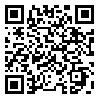Volume 25, Issue 1 (Spring 2019)
IJPCP 2019, 25(1): 26-41 |
Back to browse issues page
1- PhD. Candidate, Department of Psychology, Faculty of Education and Psychology, Shahid Beheshti University, Tehran, Iran. , hu.motie@gmail.com
2- PhD. in Educational Psychology, Associate Professor, Department of Applied Psychology, Faculty of Education and Psychology, Shahid Beheshti University, Tehran, Iran.
3- PhD. in Psychology, Assistant Professor, Department of Clinical Psychology and Health, Faculty of Education and Psychology, Shahid Beheshti University, Tehran, Iran.
2- PhD. in Educational Psychology, Associate Professor, Department of Applied Psychology, Faculty of Education and Psychology, Shahid Beheshti University, Tehran, Iran.
3- PhD. in Psychology, Assistant Professor, Department of Clinical Psychology and Health, Faculty of Education and Psychology, Shahid Beheshti University, Tehran, Iran.
Abstract: (7756 Views)
Objectives Academic procrastination is an unreasonable delay in the submission of academic assignments, which is very common. This research was designed to develop and study the effect of a mindfulness-based educational package on reducing academic procrastination.
Methods The educational package based on mindfulness for reducing academic procrastination was designed by using mindfulness-based techniques and the relevant literature of academic procrastination considering the effective constructs, including self-efficacy, test anxiety, self-esteem, and perfectionism. In a quasi-experimental study, 36 subjects were selected. In order to study the effect of the educational package on students, the experimental and control groups were put into pre-test, post-test, and follow-up categories.
Results Mixed ANOVA revealed the effectiveness of the provided educational package on improving mindfulness (F=20.87; P<0.001) and reducing academic procrastination (F=44.67; P<0.001) whose effect was significant.
Conclusion Based on the results, self-efficacy, test anxiety, self-esteem, and perfectionism of the participants in the post-test and follow-up were significantly different from the pre-test. The findings of this study are consistent with the findings of previous studies. These results are applicable to clinical and educational practitioners.
Methods The educational package based on mindfulness for reducing academic procrastination was designed by using mindfulness-based techniques and the relevant literature of academic procrastination considering the effective constructs, including self-efficacy, test anxiety, self-esteem, and perfectionism. In a quasi-experimental study, 36 subjects were selected. In order to study the effect of the educational package on students, the experimental and control groups were put into pre-test, post-test, and follow-up categories.
Results Mixed ANOVA revealed the effectiveness of the provided educational package on improving mindfulness (F=20.87; P<0.001) and reducing academic procrastination (F=44.67; P<0.001) whose effect was significant.
Conclusion Based on the results, self-efficacy, test anxiety, self-esteem, and perfectionism of the participants in the post-test and follow-up were significantly different from the pre-test. The findings of this study are consistent with the findings of previous studies. These results are applicable to clinical and educational practitioners.
Keywords: Academic procrastination, Mindfulness, Self-efficacy, Test anxiety, Self-esteem, Perfectionism
Type of Study: Original Research |
Subject:
Psychiatry and Psychology
Received: 2018/10/17 | Accepted: 2018/11/4 | Published: 2019/04/1
Received: 2018/10/17 | Accepted: 2018/11/4 | Published: 2019/04/1
| Rights and permissions | |
 |
This work is licensed under a Creative Commons Attribution-NonCommercial 4.0 International License. |





